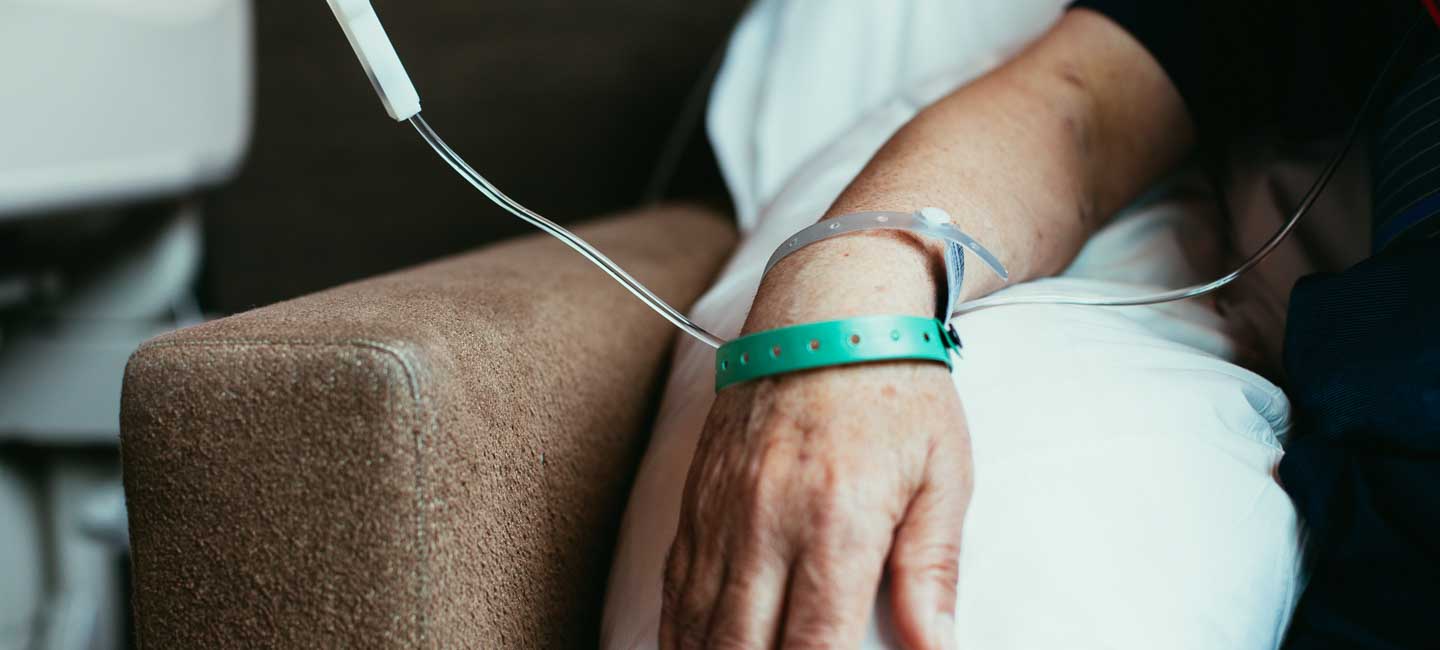Worth the Side Effect Risk
Sometimes, the side effects associated with cancer treatment can be demonstrably worth it.

Dr. Andy Trotti, radiation oncologist, Moffitt Cancer Center
Such is the case for patients with a type of cancer of the throat, tonsils and base of the tongue. The human papillomavirus (HPV) is associated with many of these oropharyngeal cancers, for which there is now an effective and curative treatment pioneered by Moffitt radiation oncologist Dr. Andy Trotti.
The number of American patients who have HPV-positive oropharyngeal cancer tripled between 1998 and 2004, making it the fastest-rising cancer among young, white men in the United States. Patients are typically diagnosed in their 50s or 60s, and thankfully, have good odds of survival when treated with radiation and chemotherapy drugs. But the most commonly used drug – cisplatin – comes with risks of side effects that can be severe. The list includes nausea/vomiting, low blood counts with risk of infection or anemia, hearing loss or tinnitus/ringing, kidney function effects, and peripheral neuropathy (numbness or tingling) in fingers and toes. This can be daunting for someone in their 50s facing decades of dealing with such side effects after successful cancer treatment.
In recent years, physicians have sought a different drug with fewer side effects for this patient population. A targeted therapy called cetuximab has been shown to be effective against head and neck cancers, usually with minimal side effects like rashes. But, when used in conjunction with radiotherapy, would it be as effective for the growing patient population with oropharyngeal cancers?
To settle the question, Trotti led an investigation funded by the National Cancer Institute. It involved researchers and nearly 900 patients at 182 cancer centers in the U.S. and Canada. Patients with HPV-positive oropharyngeal cancers were randomly assigned to receive either radiation with cisplatin chemotherapy or radiation with cetuximab. The patients were followed for more than four years.
The results, published this month in The Lancet, were a bit of a surprise to Trotti. “We hypothesized that cetuximab might be equally effective on survival with less side effects. But the survival outcomes were worse (78% 5-year survival with cetuximab vs. 85% with cisplatin) with cetuximab. We did not expect that much of a loss in survival rates.”
As expected, some study patients who received cisplatin experienced adverse effects including renal toxicity, hearing loss and bone marrow suppression. Given these effects, said Trotti, cetuximab may still be useful in patients with pre-existing hearing loss or neuropathy. But for most of these patients, Trotti said, “the magnitude of gain in survival (7 points) makes cisplatin worth it. It is clearly the superior agent and should be deemed the standard of care for this diagnosis."


